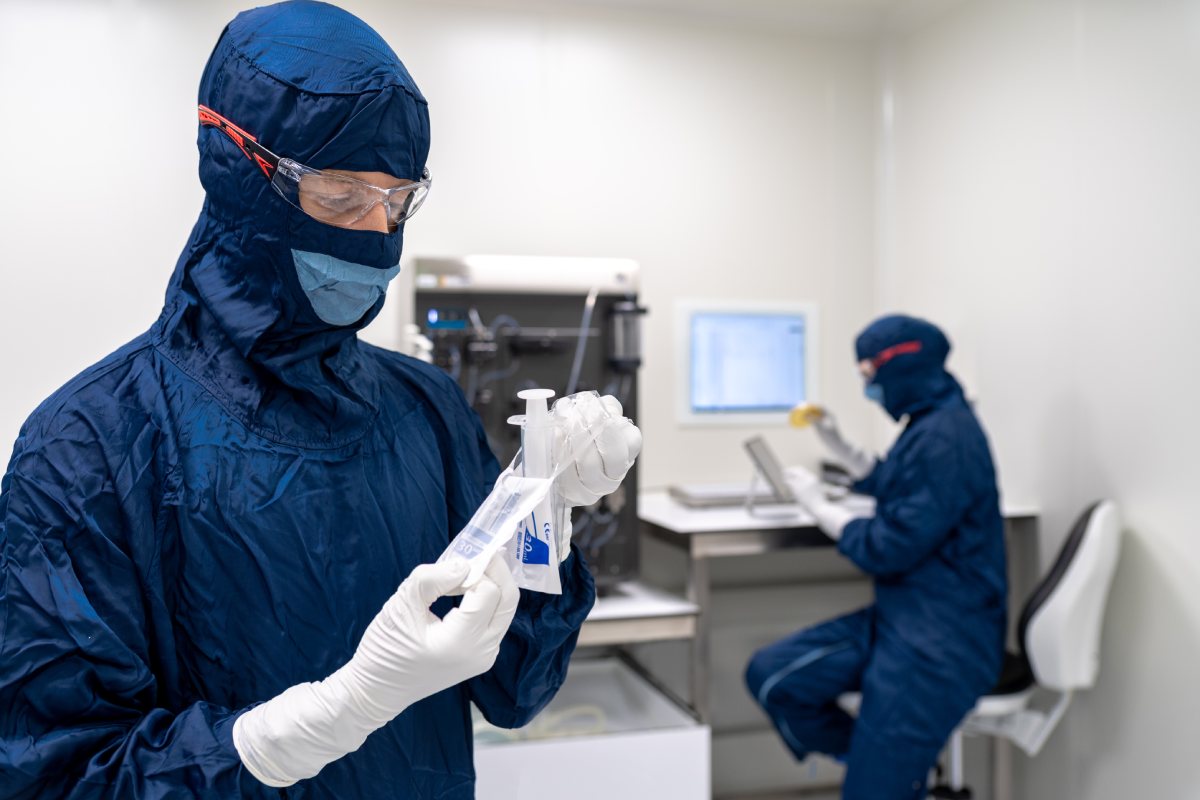Cleanroom technology has been vital in the healthcare industry for many years. It is a controlled environment designed to minimize contamination and used for producing various medical devices and pharmaceutical products.
In recent years, there have been significant improvements in cleanroom technology that have impacted the healthcare industry. These advancements have improved the quality of medical devices and drugs produced in cleanrooms while reducing production costs.
Because there is an increase in the necessity for standardizing cleanrooms, the U.S. cleanroom technology market size is expanding. According to Industry Arc, the market size was valued at $1,845 million in 2021. It is projected to grow at a CAGR of 5.18% between 2022 and 2027.
This article will explore five noteworthy advancements in cleanroom technology and their impact on the healthcare industry.
Table of Contents
1. HEPA Filtration
High-Efficiency Particulate Air filtration is an essential component of cleanroom technology. The HEPA filters capture particles as small as 0.3 microns with an efficiency of 99.97%. They remove particles from the air, including bacteria, viruses, and other contaminants.
HEPA filters are used for cleanroom construction to maintain a controlled environment with low levels of particulate matter, which is critical for producing medical devices, pharmaceuticals, and other sensitive products.
They are used in the air supply and exhaust systems in cleanrooms to ensure the air is constantly filtered and clean. Their use in cleanrooms helps minimize contamination, improve product quality, and protect the health and safety of workers.
2. Cleaning with Ultraviolet Light
According to the Centers for Disease Control & Prevention, ultraviolet germicidal irradiation, or UVGI, kills harmful microorganisms in cleanrooms. UV light is electromagnetic radiation that kills microorganisms, including bacteria and viruses, by disrupting their DNA or RNA. In cleanrooms, UV lamps are used for germicidal purposes.
These UV lamps are low-pressure mercury vapor lamps that emit radiant energy of the WL- of 253.7 nm that kills harmful microorganisms. Cleaning with ultraviolet (UV) light is an innovative technology, gaining popularity in cleanroom environments. In cleanrooms, UV light is used to sterilize surfaces and equipment, reducing the risk of contamination.
In addition, the COVID-19 pandemic has accelerated the adoption of UV light cleaning technology in various settings, including cleanrooms.
3. Dedicated Rooms for Isolating Infectious Patients
These rooms are typically located in hospitals, clinics, and other healthcare settings and are used to isolate patients infected with contagious diseases. They are equipped with specialized features such as negative air pressure, which prevents contaminated air from escaping the room, and air filtration systems to maintain clean air.
Dedicated rooms for isolating infectious patients are critical for controlling the spread of infectious diseases, particularly in the case of highly contagious illnesses such as COVID-19. In addition, they help to protect healthcare workers, patients, and the community at large from the risk of infection.
In addition to hospitals and clinics, these rooms are used in research and laboratory settings to isolate infectious samples and specimens.
4. Cleanroom Apparel, Beds, and Covers
They are specialized equipment designed for use in cleanroom environments. In addition, cleanroom apparels, beds, and covers are also a part of the industry supply of laundered items. According to IBIS world, the U.S. market size of overall industrial laundry is huge and worth $20 billion.
However, the supplies used in the cleanrooms differ completely from those used regularly. For example, cleanroom apparel is made of non-shedding materials and frequently changed to maintain a clean and sterile environment.
They are designed to minimize the risk of particle generation and contamination, which is critical for producing medical devices and pharmaceutical products. In addition, cleanroom beds are made of materials that do not shed particles and are designed to be easy to clean and sterilize.
5. Containment Equipment for All Medical Packaging, Devices, and Supplies
It is an essential component of cleanroom technology used in producing and handling medical packaging, devices, and supplies. It is designed to prevent environmental contamination and ensure that products remain sterile during storage and transportation.
Containment equipment includes specialized packaging materials, sterilization containers, and transport carts designed to minimize contamination risk. In addition, containment equipment also includes specialized handling tools and equipment that are designed to minimize the risk of particle generation during manufacturing and handling processes.
The use of containment equipment is critical for maintaining product quality, protecting the health and safety of workers, and ensuring that medical packaging, devices, and supplies meet the highest standards of cleanliness and sterility.
Conclusion
The advancements in cleanroom technology have significantly impacted the healthcare industry by improving product quality, protecting the health and safety of workers, and reducing the risk of contamination.
High-efficiency air filtration systems, cleaning with ultraviolet light, and dedicated rooms for isolating infectious patients are just a few examples of innovative technologies that have become integral to the operation of cleanrooms.
These technologies are critical for producing medical devices, pharmaceutical products, and other sensitive materials that require a controlled environment. As the demand for cleanroom technology continues to grow, further advancements in the field will lead to more efficient and effective ways to maintain clean and sterile environments.

